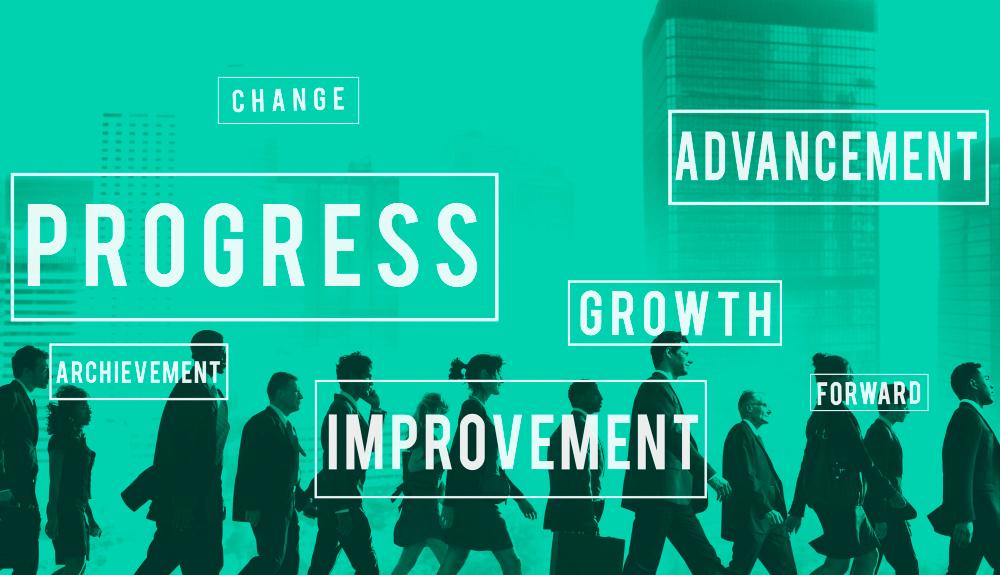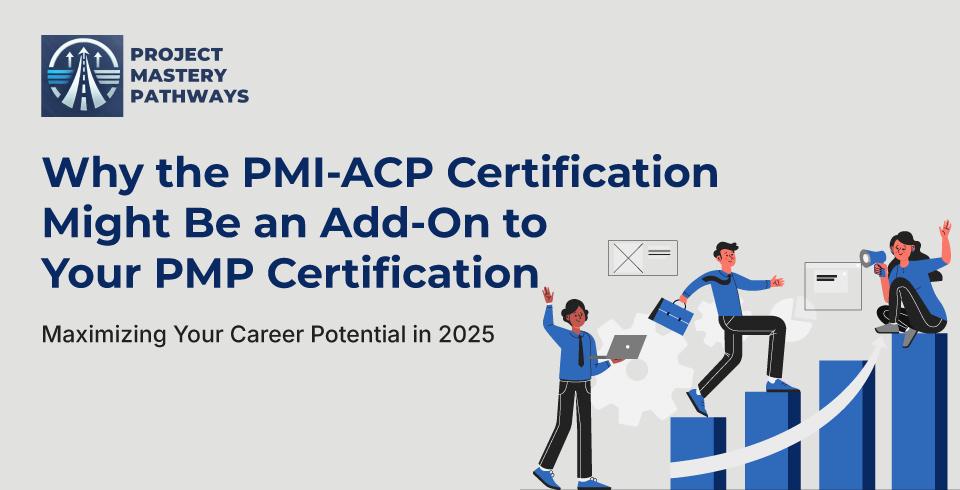Are you a PMP-certified project manager feeling like something’s missing from your toolkit? In today’s rapidly evolving business landscape, having traditional project management skills alone may not be enough to stay competitive. Organizations worldwide are embracing agile methodologies at an unprecedented pace, with Gartner estimating that 80% of all software development projects now utilize Agile methods. This shift creates a significant challenge for project managers who excel in traditional waterfall approaches but lack the specialized skills needed to thrive in agile environments.
If you’re already PMP-certified but finding yourself excluded from exciting agile project opportunities, or if you’re struggling to adapt to your organization’s agile transformation, you’re not alone. The solution lies in complementing your existing PMP credentials with the PMI Agile Certified Practitioner (PMI-ACP) certification. This powerful combination can position you as a versatile project management professional capable of leading both traditional and agile projects effectively.
By the end of this article, you’ll understand why the PMI-ACP certification serves as the perfect complement to your PMP certification, how it can accelerate your career growth, and the strategic advantages this dual certification approach offers in today’s competitive job market.
Understanding the PMI-ACP Certification: The Agile Specialist Credential

The PMI Agile Certified Practitioner (PMI-ACP) certification is a specialized credential that formally acknowledges your agile experience with the industry’s only agnostic, experience-based, ISO-accredited exam. Unlike other agile certifications that focus on a single methodology like Scrum, the PMI-ACP provides comprehensive coverage of multiple agile approaches, including Scrum, Kanban, Lean, Extreme Programming (XP), Test-Driven Development (TDD), and DSDM.
This certification validates your ability to drive excellence across various agile methodologies, demonstrating your expertise in applying agile principles effectively while maintaining a truly agile and team-centric approach. The PMI-ACP certification highlights your agile expertise and proves you can get teams, clients, and stakeholders to communicate and collaborate effectively while remaining adaptable and flexible in dynamic project environments.
Key Features of PMI-ACP Certification:
- Methodology Agnostic: Covers multiple agile frameworks rather than limiting you to one approach
- Experience-Based: Requires real-world agile project experience, not just theoretical knowledge
- ISO-Accredited: Meets international standards for professional certification
- Comprehensive Coverage: Includes agile principles, practices, tools, and techniques across various frameworks
The PMI-ACP exam consists of 120 multiple-choice questions that must be completed within 3 hours, focusing on four key domains: Mindset (28%), Leadership (25%), Product (19%), and Delivery (28%). This structure ensures you develop well-rounded agile expertise that employers value across industries.
Why Your PMP Certification Needs an Agile Complement
The modern project management landscape demands versatility and adaptability. While your PMP certification demonstrates mastery of traditional project management principles, the PMI-ACP certification fills critical gaps in agile expertise that are increasingly essential for career advancement.
The Evolving Project Management Landscape
Organizations that embrace agility and adaptability outperform their counterparts, resulting in increased value and customer satisfaction. The current PMP exam already acknowledges this reality, with approximately 50% of PMP exam questions now focusing on agile and hybrid methodologies. However, the PMP certification provides broad coverage of agile concepts rather than the deep, specialized knowledge that PMI-ACP offers.
Complementary Strengths
Your PMP certification excels in areas such as:
- Comprehensive project lifecycle management
- Risk management and stakeholder engagement
- Budget and resource management
- Traditional project planning and control mechanisms
The PMI-ACP certification adds specialized expertise in:
- Agile mindset and cultural transformation
- Iterative development and continuous improvement
- Cross-functional team leadership
- Adaptive planning and customer collaboration
Enhanced Eligibility Advantage
An interesting benefit for PMP holders is that having a current PMP certification satisfies the general project management experience requirement for PMI-ACP certification. This means you can focus on gaining agile-specific experience and training rather than proving your overall project management competency, making the path to PMI-ACP more accessible.
The combination of both certifications positions you as a comprehensive project management professional who can seamlessly transition between traditional and agile approaches based on project needs, organizational culture, and stakeholder requirements.
Strategic Career Advantages of Dual Certification
Holding both PMP and PMI-ACP certifications creates a unique competitive advantage that can significantly accelerate your career trajectory. This dual certification approach demonstrates your versatility and commitment to continuous learning, qualities highly valued by employers across industries.
Expanded Career Opportunities
The PMI-ACP certification opens doors to specialized roles that may not be accessible with PMP certification alone. According to industry data, PMI-ACP certified professionals can pursue roles such as:
- Agile Coach: Average salary of $131,226 per year, guiding organizations through agile transformations
- Scrum Master: Salary range of $58,000-$120,000, facilitating agile teams and removing obstacles
- Product Owner: Average salary of $109,000 in the USA, managing product backlogs and stakeholder requirements
- Agile Project Manager: Managing projects using agile methodologies with flexible, iterative approaches
Salary Enhancement Potential
Industry surveys consistently show that certified agile professionals command higher salaries than their non-certified counterparts. The PMI-ACP certification can result in a 20% salary increase compared to non-certified agile professionals, with the average PMI-ACP salary in the United States reaching approximately $120,000 annually.
When combined with your existing PMP certification, which already provides a 33% salary advantage according to PMI’s Earning Power survey, you position yourself in the highest-earning tier of project management professionals.
Industry Versatility
The dual certification approach makes you attractive to employers across various industries that are undergoing agile transformation:
- Technology Sector: Where agile practices are standard and deep expertise is essential
- Financial Services: Organizations adopting agile to improve customer experience and product development
- Healthcare: Implementing agile approaches for better patient outcomes and operational efficiency
- Manufacturing: Using agile principles for lean operations and continuous improvement
Future-Proofing Your Career
With the continued growth of agile adoption across industries, having both certifications ensures you remain relevant and valuable regardless of how project management practices evolve. This dual expertise allows you to guide organizations through their agile transformation journey while maintaining the structured approach that PMP certification provides.
You can learn more about maximizing your project management career potential through our comprehensive guide on best project management certifications for beginners.

Practical Steps to Pursue PMI-ACP as a PMP Holder
If you’re convinced that adding PMI-ACP to your PMP certification is the right move, here’s a strategic approach to make the transition smooth and efficient.
Simplified Eligibility Requirements
As a PMP holder, you’re already ahead in the PMI-ACP certification journey. The PMI-ACP requirements for PMP-certified professionals are streamlined:
- Education: Secondary degree (high school diploma or equivalent) – already satisfied by your PMP eligibility
- General Project Experience: 2,000 hours of general project management experience within the last 5 years (waived if you hold current PMP certification)
- Agile Experience: 1,500 hours of agile project experience within the last 3 years
- Agile Training: 28 hours of training in agile practices, frameworks, and methodologies
Strategic Preparation Approach
Phase 1: Gain Agile Experience (3-6 months) Focus on securing agile project assignments within your current organization or through consulting opportunities. Look for projects using Scrum, Kanban, or other agile methodologies to build the required 1,500 hours of experience.
Phase 2: Complete Agile Training (2-4 weeks) Invest in comprehensive agile training that covers multiple methodologies. Choose PMI-authorized training providers to ensure your 28 hours of training are recognized and contribute to your overall agile knowledge base.
Phase 3: Intensive Exam Preparation (2-3 months) The PMI-ACP exam focuses on practical application rather than theoretical knowledge. Practice with scenario-based questions that test your ability to apply agile principles in real-world situations.
Cost-Effective Investment
The PMI-ACP certification is more affordable than the PMP exam, with fees of $435 for PMI members and $495 for non-members. Study materials and training typically cost between $250-$1,300, making it a cost-effective investment in your career advancement.
Renewal Benefits
The PMI-ACP certification requires only 30 PDUs every three years for renewal, compared to the PMP’s 60 PDUs. This makes it easier to maintain both certifications simultaneously while continuing to grow your expertise in both traditional and agile project management.
For comprehensive preparation strategies, explore our detailed guide on PMP exam success which includes insights applicable to PMI-ACP preparation as well.
Maximizing Your Dual Certification Success
Having both PMP and PMI-ACP certifications is just the beginning. To truly maximize the value of your dual certification, you need to strategically leverage both credentials in your career development and professional branding.
Building Your Professional Brand
Position yourself as a “Hybrid Project Management Expert” who can seamlessly navigate both traditional and agile environments. This unique positioning makes you invaluable to organizations undergoing digital transformation or those operating in mixed-methodology environments.
Continuous Learning Strategy
Stay current with evolving practices in both domains. The project management field continues to evolve, with new hybrid approaches emerging that combine the best of traditional and agile methodologies. Your dual certification foundation provides the perfect base for adapting to these changes.
Network Expansion
Join both traditional project management communities and agile-focused groups. This dual network exposure provides access to diverse opportunities and keeps you informed about trends in both areas of expertise.
Mentoring and Leadership
Use your comprehensive knowledge to mentor other project managers transitioning between methodologies. This positions you as a thought leader and creates additional career opportunities in training, consulting, and organizational development.
The combination of PMP and PMI-ACP certifications represents more than just additional credentials—it’s a strategic career investment that positions you at the forefront of modern project management practices.
Ready to take your project management career to the next level with dual certification expertise? Follow PMPwithRay for expert guidance on both PMP and agile certification journeys, including study tips, exam strategies, and career advancement insights. For comprehensive training and preparation resources, explore our specialized project management courses on Udemy designed to help you master both traditional and agile project management approaches.
Your journey to becoming a versatile, highly sought-after project management professional starts with the strategic decision to complement your PMP certification with PMI-ACP expertise. Take action today and position yourself as the complete project management professional that organizations need to succeed in today’s dynamic business environment.

